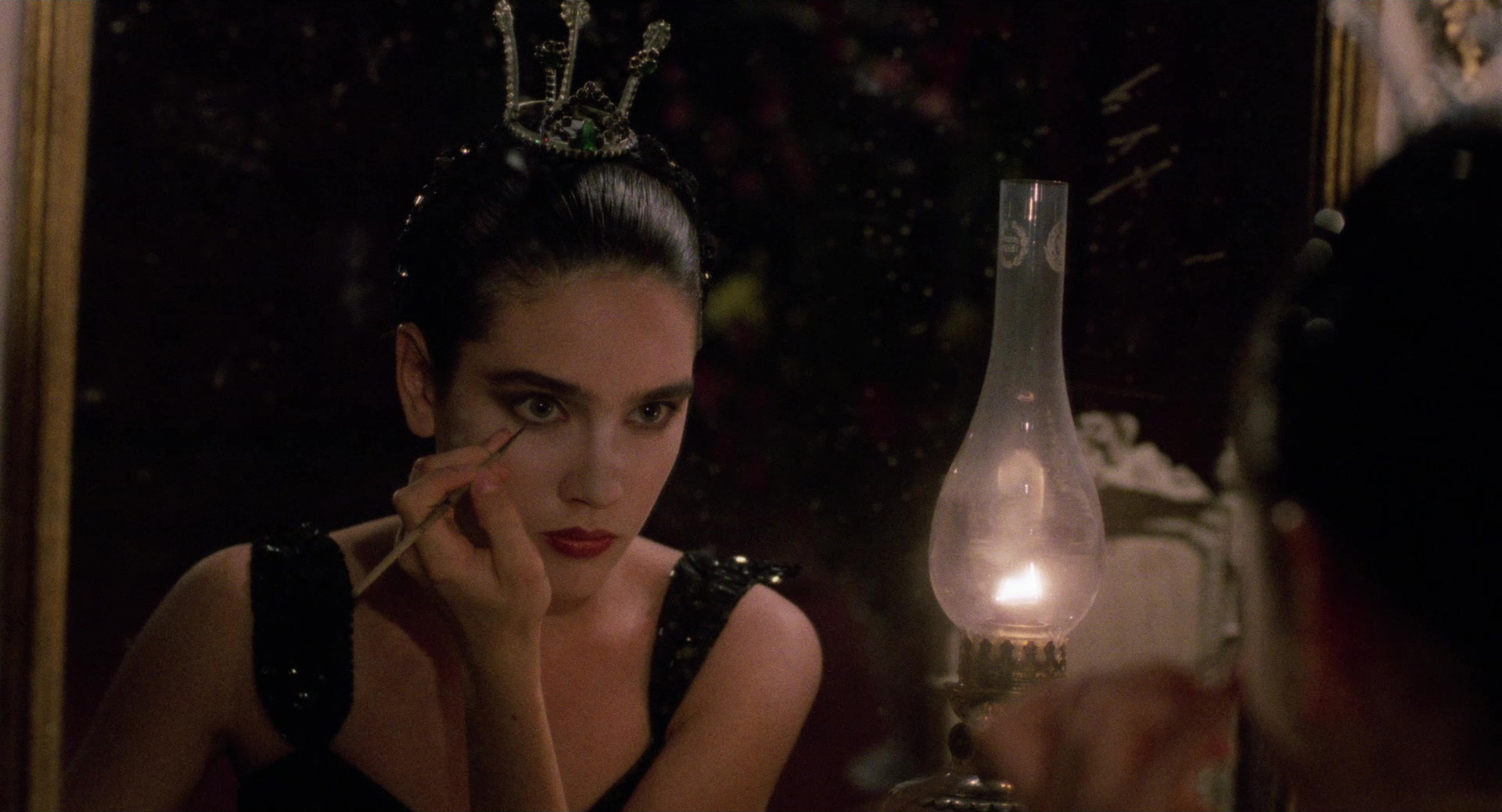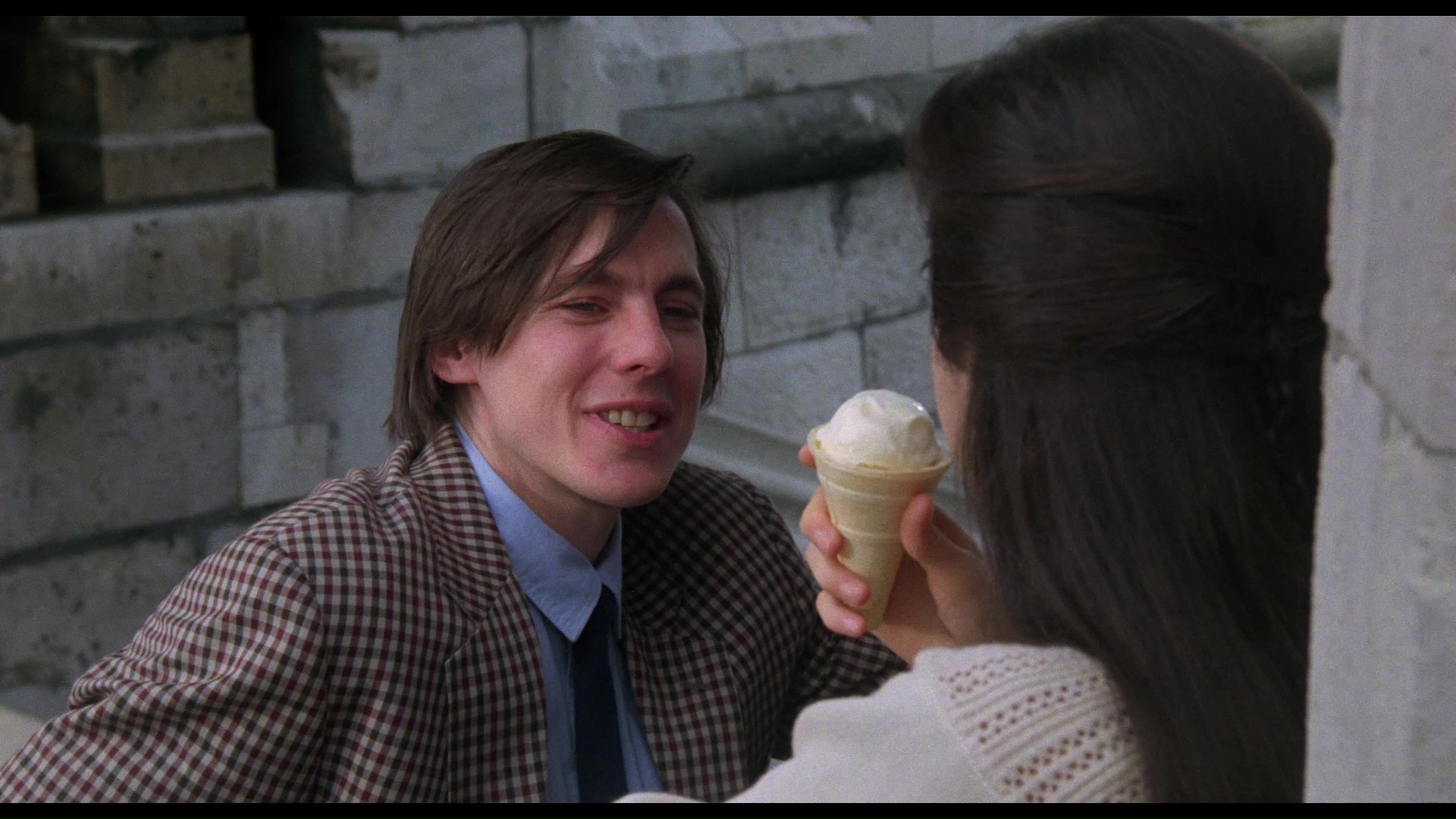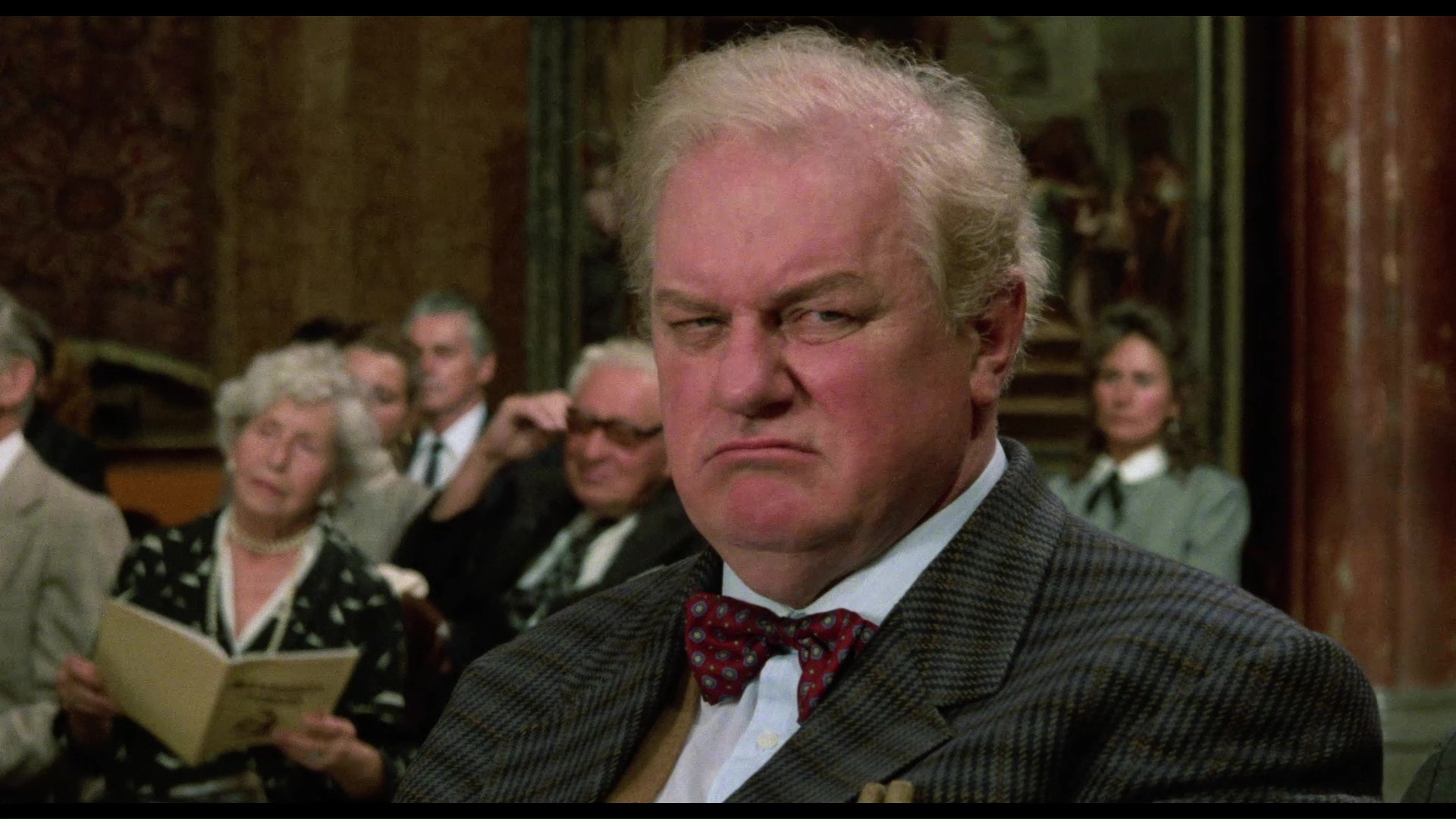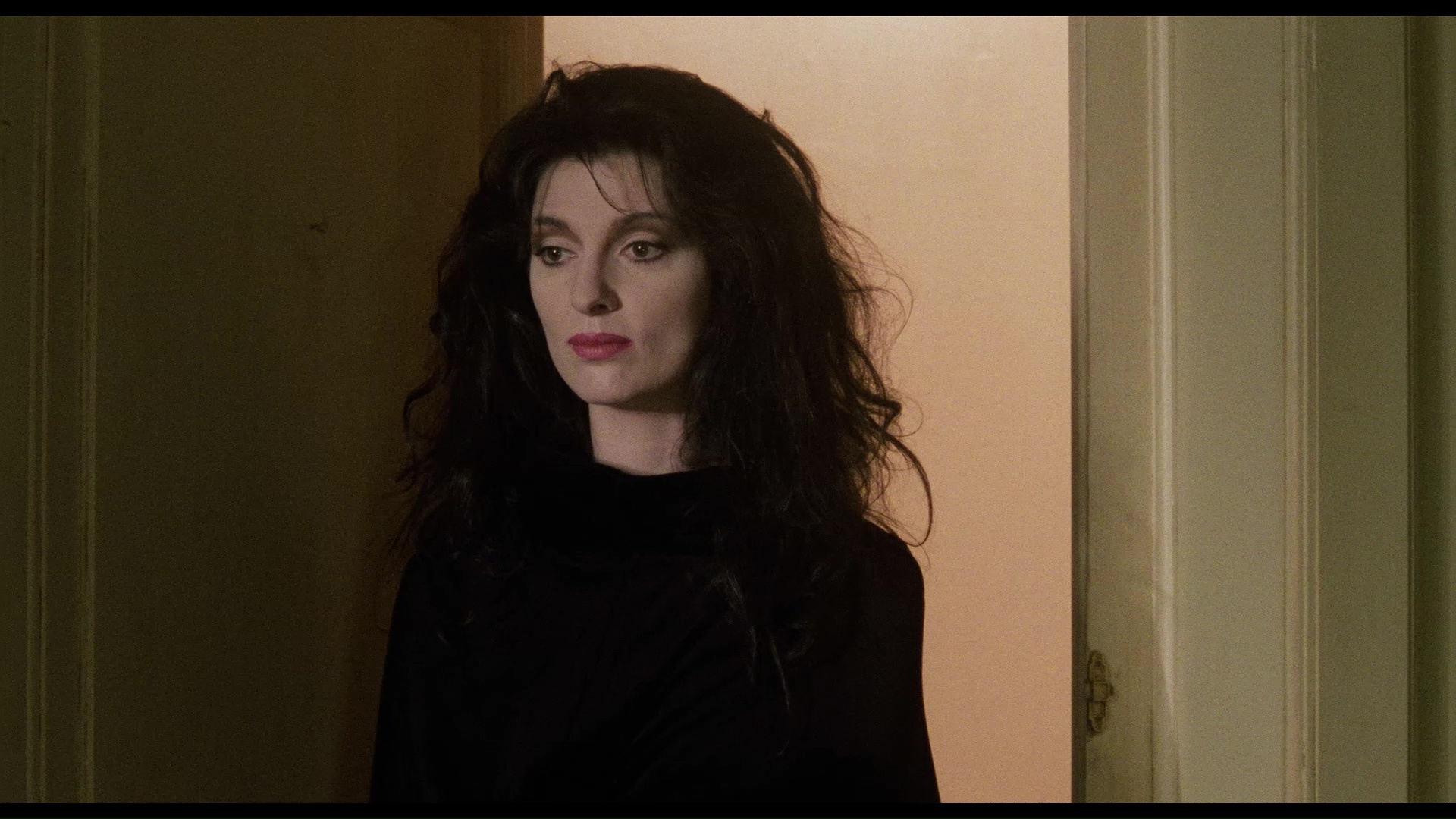

 final, and
final, and  most obscure entry in the batch of films made by a young, very pre-Oscar Jennifer Connelly in Italy (following Once Upon a Time in America and Phenomena), Étoile (or "Star," if you're not up on your French) is a tough film to pin down and has remained strangely difficult to see over the years. Only receiving a notable theatrical and home video release at the time in Japan (where Connelly was and remains very popular), the film features a supernatural plot and, thanks to co-writer Franco Ferrini (Phenomena, Opera), often feels like a legitimate Italian horror film. However, it's a bit more difficult to pin down than that as it flirts more with sinister fantasy than anything else, using its tale of an American ballet student at the mercy of dark forces (Suspiria, anyone?) to weave a tale of possession and artistic obsession that isn't quite like anything else.
most obscure entry in the batch of films made by a young, very pre-Oscar Jennifer Connelly in Italy (following Once Upon a Time in America and Phenomena), Étoile (or "Star," if you're not up on your French) is a tough film to pin down and has remained strangely difficult to see over the years. Only receiving a notable theatrical and home video release at the time in Japan (where Connelly was and remains very popular), the film features a supernatural plot and, thanks to co-writer Franco Ferrini (Phenomena, Opera), often feels like a legitimate Italian horror film. However, it's a bit more difficult to pin down than that as it flirts more with sinister fantasy than anything else, using its tale of an American ballet student at the mercy of dark forces (Suspiria, anyone?) to weave a tale of possession and artistic obsession that isn't quite like anything else. 
 undergo a striking transformation from an innocent schoolgirl persona to a black-clad queen of the night. The darker elements don't really come to the forefront until the final third of the film when the fateful ballet performance starts to close in, and it's pulled off during the climax nicely by director Peter Del Monte, best known for the delirious art house favorite Invitation au Voyage and the frustrating, shot-on-video curio Julia and Julia with Kathleen Turner. It's a gorgeous film through and through thanks to cinematography by Raoul Ruiz regular Acácio de Almeida, who conjures up some truly striking imagery worthy of classic paintings, and the odd, subdued music score by frequent Wim Wenders composer Jürgen Knieper (which was first released on CD paired up with The Visitor, oddly enough) is a marked departure from what you'd normally find in an Italian genre film around this time. Ultimately the film proved to be too difficult to market to really find much of an audience (and the bland performance by McCleery probably didn't help), but it's worth a look for the curious and definitely a potent sensory experience. As noted above, it's easy to compare this film to those that preceded it, but equally fascinating is how much it foreshadows some later art films, most obviously Lucile Hadzihalilovic's Innocence and especially Darren Aronofsky's Black Swan.
undergo a striking transformation from an innocent schoolgirl persona to a black-clad queen of the night. The darker elements don't really come to the forefront until the final third of the film when the fateful ballet performance starts to close in, and it's pulled off during the climax nicely by director Peter Del Monte, best known for the delirious art house favorite Invitation au Voyage and the frustrating, shot-on-video curio Julia and Julia with Kathleen Turner. It's a gorgeous film through and through thanks to cinematography by Raoul Ruiz regular Acácio de Almeida, who conjures up some truly striking imagery worthy of classic paintings, and the odd, subdued music score by frequent Wim Wenders composer Jürgen Knieper (which was first released on CD paired up with The Visitor, oddly enough) is a marked departure from what you'd normally find in an Italian genre film around this time. Ultimately the film proved to be too difficult to market to really find much of an audience (and the bland performance by McCleery probably didn't help), but it's worth a look for the curious and definitely a potent sensory experience. As noted above, it's easy to compare this film to those that preceded it, but equally fascinating is how much it foreshadows some later art films, most obviously Lucile Hadzihalilovic's Innocence and especially Darren Aronofsky's Black Swan.  options and suffered from PAL speedup that wrecked the Swan Lake passages. That means the 2017 Scorpion Releasing editions on Blu-ray (sold in the U.S. by Ronin Flix and overseas by Diabolik) and DVD can only be an improvement, and indeed it looks quite gorgeous with a fresh 2K scan offering a nice
options and suffered from PAL speedup that wrecked the Swan Lake passages. That means the 2017 Scorpion Releasing editions on Blu-ray (sold in the U.S. by Ronin Flix and overseas by Diabolik) and DVD can only be an improvement, and indeed it looks quite gorgeous with a fresh 2K scan offering a nice  sense of depth throughout, vibrant colors, and much better detail in those darker scenes lit only by candlelight. As with past transfers there's some obvious telecine wobble baked into the opening and closing credits and some bumpy edits throughout, which appears to be a flaw with the original assembly of the film. The English DTS-HD MA stereo track sounds solid for what amounts to a fairly undemanding mix.
sense of depth throughout, vibrant colors, and much better detail in those darker scenes lit only by candlelight. As with past transfers there's some obvious telecine wobble baked into the opening and closing credits and some bumpy edits throughout, which appears to be a flaw with the original assembly of the film. The English DTS-HD MA stereo track sounds solid for what amounts to a fairly undemanding mix. ![]()